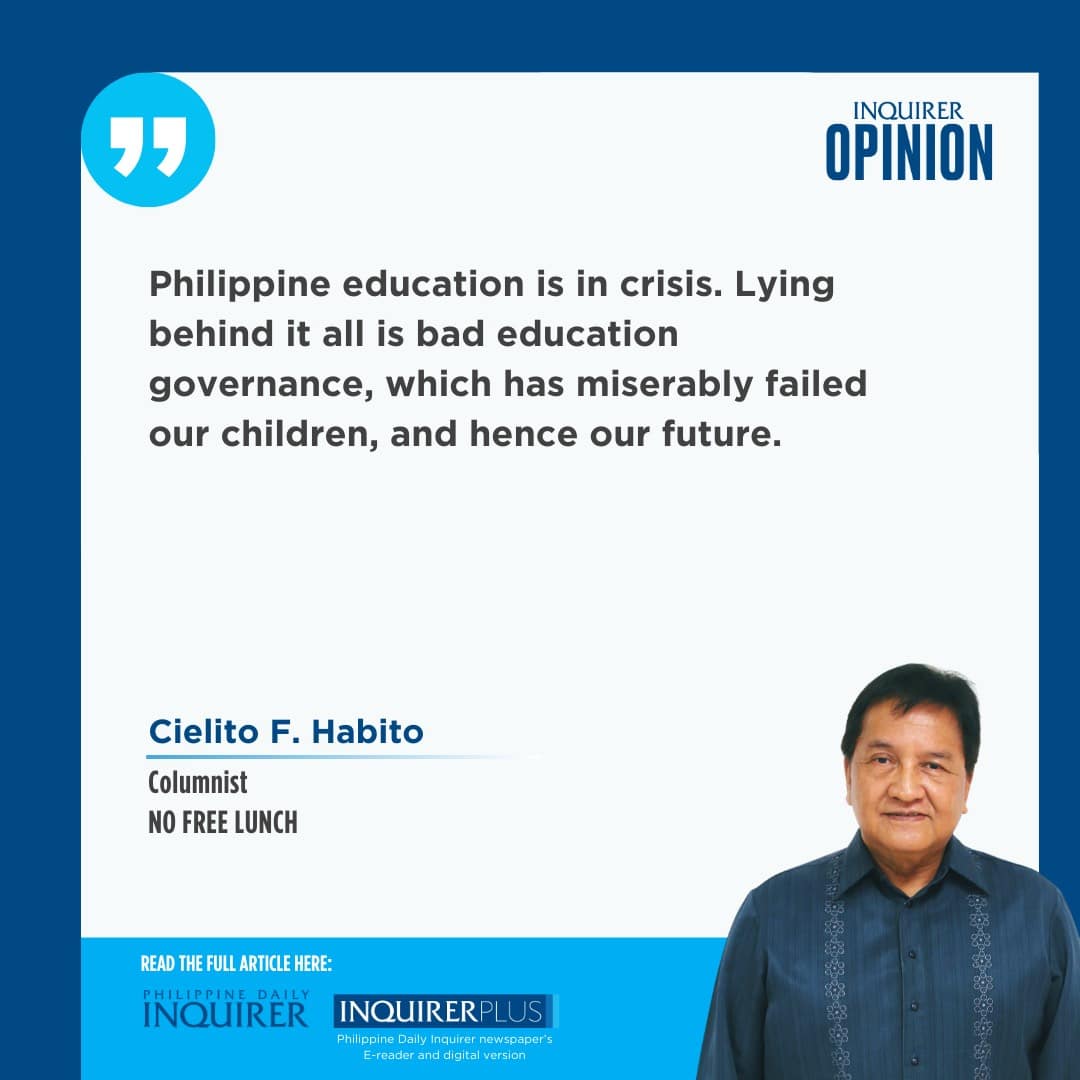Governing education right
Philippine education is in crisis. Most of us know of our country’s unenviable position at or near the bottom of countries worldwide ranked on education outcomes. People naturally blame the lack and poor quality of our schools, textbooks, and teachers (but I’ve also written on how malnutrition has much to do with it, too). Many like to blame bad education for our country’s tremendous challenges in the economic, socio-cultural, political, and environmental spheres. Lying behind it all is bad education governance, which has miserably failed our children, and hence our future.
The ongoing Second Congressional Commission on Education (EdCom II) is supported by technical experts in four standing committees, gathering and analyzing quantitative and qualitative evidence on the state of Philippine education. I am honored to be part of the standing committee on governance and finance, a concern that transcends the focus of the other committees focused on (1) early childhood care and development and basic education; (2) higher education and teacher education and development; and (3) technical-vocational education and training and lifelong learning. Indeed, we’ve found that most problems identified in those various segments of the education sector somehow trace back to issues in governance and finance.
Article continues after this advertisementEdCom II’s governance and finance work is in turn organized under five priority areas or themes: (1) seamless and integrated delivery of education, (2) public-private complementarity, (3) integrated performance management and accountability system, (4) financing and resource mobilization, and (5) decentralization and participatory governance. The first theme focuses on coordination across the three agencies resulting from the “trifocalization” of Philippine education governance recommended by EdCom I in 1991, as well as internal organizational concerns within each of those three agencies—the Department of Education (DepEd), Commission on Higher Education, and Technical Education and Skills Development Authority. I wrote last week about our lack of an integrated education strategy, plan, and agenda that should align the work of the three toward a common vision for the Filipino workforce as we face a digital and artificial intelligence-driven future. Each agency has internal staffing and organizational issues hampering its effectiveness in serving its stakeholders, which must be addressed as well.
The second theme asserts our Constitution’s recognition of the complementary roles of public and private institutions in the educational system. However, private schools at all levels now commonly voice concern over unduly low attention and support, even discrimination, from government, even as they often outperform public schools on education outcomes. EdCom II is studying creative ways to provide warranted support to private schools to allow them to fully play their vital roles in delivering quality education to Filipino learners. On the third theme, accountability frameworks now in use to monitor and oversee performance at various levels of our educational system are found to be misaligned with the ultimate goals of learning outcomes and employability of graduates. EdCom II found that schools and teachers are assessed based more on compliance with processes rather than how well their students learn. Teacher behavior is distorted toward achieving high student scores and promoting non-deserving students because their performance is based on students’ test scores rather than actual learning in the classroom, which is not the same thing. Little wonder, then, that too many of our sixth graders are still unable to read!
EdCom I found Philippine public education expenditures as a percentage of GDP to be the lowest in Asean. Thailand and Malaysia invested over twice as much, while developed countries such as Japan, the United States, Germany, and Denmark invested at least four times more. Now, over 30 years later, our education spending remains well below that of our Asean peers; worse, the quality of that spending has been highly questionable. A glaring EdCom II finding has been the complete absence of textbooks in most elementary grades, with only a small fraction of the textbook budget having been spent since 2012! The fifth governance theme has to do with empowering local governments and schools to do what is best for learners in their particular contexts. DepEd manages basic education through what many see to be a top-heavy and humongous bureaucracy that deters principals and teachers from exercising creativity and innovation without an enabling memo from higher up (see my recent “From ‘memocracy’ to ‘bibingka,’ 4/2/24).
Article continues after this advertisementThese are the burdens new Education Secretary Sonny Angara will begin to carry in a few days. For the sake of our children and their future, he needs our prayers for tenacity and wisdom.
—————–
cielito.habito@gmail.com

















